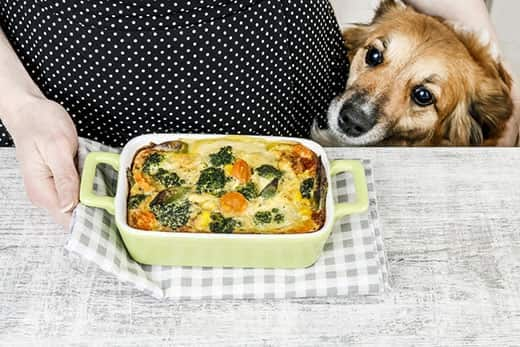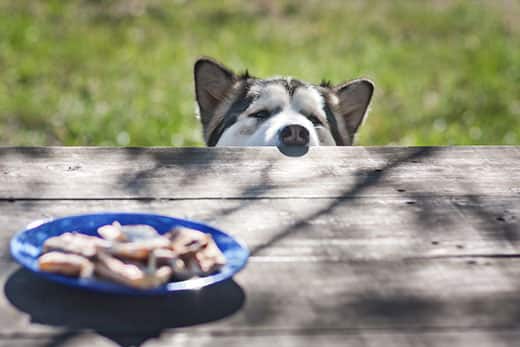
-
Find the right food for your pet
Take this quiz to see which food may be the best for your furry friend.
Find the right food for your pet
Take this quiz to see which food may be the best for your furry friend.
Featured products
 Adult 7+ Perfect Digestion Chicken, Whole Oats & Brown Rice Recipe Dog Food
Adult 7+ Perfect Digestion Chicken, Whole Oats & Brown Rice Recipe Dog FoodScience Diet's breakthrough nutrition supports ultimate digestive well-being & healthy microbiome for dogs age 7+
Shop Now Adult Perfect Weight & Joint Support Chicken Recipe Dry Dog Food
Adult Perfect Weight & Joint Support Chicken Recipe Dry Dog FoodThis weight management and mobility support dog food was created with Hill’s unique understanding of the biology of overweight dogs.
Shop Now Adult 7+ No Corn, Wheat, Soy Chicken & Brown Rice Dog Food
Adult 7+ No Corn, Wheat, Soy Chicken & Brown Rice Dog FoodSupports energy level and beautiful coat in mature dogs
Shop NowFeatured products
 Adult Perfect Digestion Chicken, Barley & Whole Oats Recipe Cat Food
Adult Perfect Digestion Chicken, Barley & Whole Oats Recipe Cat FoodScience Diet's breakthrough nutrition supports ultimate digestive well-being & healthy microbiome
Shop Now Adult Savory Chicken Entrée Cat Food
Adult Savory Chicken Entrée Cat FoodPrecisely balanced nutrition with the delicious taste of savory minced chicken to help fuel the energy needs of cats during the prime of their life
Shop Now Perfect Weight Salmon & Vegetable Canned Cat Food
Perfect Weight Salmon & Vegetable Canned Cat FoodOver 70% of cats lost weight within 10 weeks when fed this nutrition
Shop Now -
Dog
- Dog Tips & Articles
-
Health Category
- Weight
- Food & Environmental Sensitivities
- Urinary
- Digestive
- Joint
- Kidney
-
Life Stage
- Puppy Nutrition
- Adult Nutrition
- Senior Nutrition
Cat
- Cat Tips & Articles
-
Health Category
- Weight
- Skin & Food Sensitivities
- Urinary
- Digestive
- Kidney
-
Life Stage
- Kitten Nutrition
- Adult Nutrition
Featured articles
 Water
WaterDiscover why water is the most important nutrient for your dog or cat to live a healthy life. Find out how much water your pet should consume each day.
Read More Pet Food Storage Tips
Pet Food Storage TipsDiscover how and where to store your dry, as well as canned, dog and cat food. Learn how to find the "best before" dates on all Hill's pet food packaging.
Read More The Incredible Science Behind Your Pet's Microbiome
The Incredible Science Behind Your Pet's MicrobiomeLearn what a pet's microbiome is, how it contributes to your pet's gut & overall health, and why nutrition is important in maintaining healthy microbiomes.
Read More -
Find the right food for your pet
Find the right food for your pet


When the begging starts, it's hard to resist giving your pooch a bite from your dinner plate. But, do you know that table food for dogs can be harmful?
Can Dogs Eat Table Food?
The question isn't so much can your dog eat scraps, but rather, is it good for your pup to do so? Here are a number of reasons why feeding your dog from your plate is a bad idea.
It Can Cause Digestive Problems
 A dog's digestive system is different from a human's. Typical human food is much too rich and fatty for a dog to properly digest; eating it can lead to vomiting, diarrhea and even more severe conditions like pancreatitis. Many human foods also contain an unhealthy amount of sodium for dogs.
A dog's digestive system is different from a human's. Typical human food is much too rich and fatty for a dog to properly digest; eating it can lead to vomiting, diarrhea and even more severe conditions like pancreatitis. Many human foods also contain an unhealthy amount of sodium for dogs.
Some Table Food Is Toxic to Dogs
Human food often contains ingredients that are toxic to dogs. Chocolate, raisins, grapes, macadamia nuts, almonds, onions and garlic are all dangerous for dogs to eat. If you don't know exactly what's in the restaurant leftovers you brought home, you could unknowingly hurt your begging pooch by feeding them a spoonful. Many processed foods also contain artificial sweeteners, such as xylitol, which are extremely harmful to pets.
It Can Lead to Weight Gain
Typically, dogs who are fed table scraps also eat regular daily meals. While you might think that a bite or two here and there won't cause your dog to gain weight, you might be surprised by how little it takes. To a 20-pound dog, a single ounce of cheddar cheese is the caloric equivalent of one and a half hamburgers for a person. Small bites can quickly add up and lead to weight gain that can lead to a whole host of health problems, like arthritis, diabetes and heart disease. Your dog should never consume more than10% of their daily caloric intake from treats or other human foods.
It Encourages Unwanted Behavior
Another problem with table food for dogs is that it reinforces begging behavior. And while you might find it cute, dinner guests may not appreciate your dog hovering over their plates. Your dog might also decide that, since they're fed from the table, it's fine to take a bite (or more) of food sitting on the table or kitchen counter. Some dogs may even start refusing to eat their own food when they fill up on human food.


Tasty Tips
Healthy Ways to Treat Your Dog
 The best way to treat your dog is by giving them healthy, high-quality dog treats and factoring them into their daily calorie requirements. That doesn't mean that the foods you eat are totally off-limits to your dog, however. In fact, many human foods are fine for dogs to eat in moderation. Here are some guidelines for giving human food to your dog:
The best way to treat your dog is by giving them healthy, high-quality dog treats and factoring them into their daily calorie requirements. That doesn't mean that the foods you eat are totally off-limits to your dog, however. In fact, many human foods are fine for dogs to eat in moderation. Here are some guidelines for giving human food to your dog:
- Avoid processed and prepared foods: Even meals you cook yourself can contain ingredients that could harm your dog, so stick to single-ingredient treats, such as an unsalted egg, a spoonful of natural, salt-free peanut butter or a bite of fruit or unsalted vegetables.
- Consider the calories: Before handing over that snack from the table, consider how many calories it is and let that factor into your decision. Your vet should be able to help you understand the recommended daily calories your dog should be getting, so you are aware of the impact that a single table scrap will have on your pup's health.
- Educate yourself: Learn which foods are toxic to dogs so that you can make sure you never let your dog near them.
- Don't feed them from the table or your plate: Instead, give your dog a bite of healthy human food the same way you'd give them any other dog treat — as a reward for obedience or for being a good dog. And avoid giving them a treat when they're begging. It can also be a good idea to put them into their regular dog food bowl, so that they understand that they can only get food to eat from their normal bowl.
Importance of Choosing the Best Dog Food
Dogs aren't good at regulating the amount of food that they eat. Many dogs will continue eating until they make themselves sick, so it is important that you oversee their meals and calories. Feeding a complete and balanced dog food optimal for their lifestage, size and activity level ensures that they are getting the necessary nutrients they need to be healthy. Despite those big puppy eyes, feeding the right dog food in the right amounts is more than enough to keep them happy and energetic.
So, can dogs eat table food? Dogs will eat — and enjoy — a number of foods; but just because they'll eat it doesn't mean it's good for them. As an informed pet parent, you can help your dog stay healthy by restricting what you allow your pup to eat. While it might be hard to say no to those big, pleading eyes, remember that it's for their own good: A healthy dog is a happy dog.


One of our staff authors prepared this article for you
Related products

Science Diet's breakthrough nutrition supports ultimate digestive well-being & healthy microbiome for dogs age 7+

This weight management and mobility support dog food was created with Hill’s unique understanding of the biology of overweight dogs.

Delicious braised beef paired with tender vegetables in a succulent stew

Supports energy level and beautiful coat in mature dogs
Related articles

Understand the role that Omega-6 and Omega-3 fatty acids play in your dog's overall health, and how you can ensure they are getting enough.

Large and giant breed puppies have different nutritional needs than other dogs. Learn how to provide the special care they need to grow up big and strong.

Proper nutrition for your pregnant or nursing dog is vital to her and her puppy's health. Learn what you should do provide her with the proper nutrients.

Learn about Hill's puppy food and the nutritional benefit & high quality ingredients that it contains for your pup.

Put your dog on a diet without them knowing
Our low calorie formula helps you control your dog's weight. It's packed with high-quality protein for building lean muscles, and made with purposeful ingredients for a flavorful, nutritious meal. Clinically proven antioxidants, Vitamin C+E, help promote a healthy immune system.
Put your dog on a diet without them knowing
Our low calorie formula helps you control your dog's weight. It's packed with high-quality protein for building lean muscles, and made with purposeful ingredients for a flavorful, nutritious meal. Clinically proven antioxidants, Vitamin C+E, help promote a healthy immune system.

